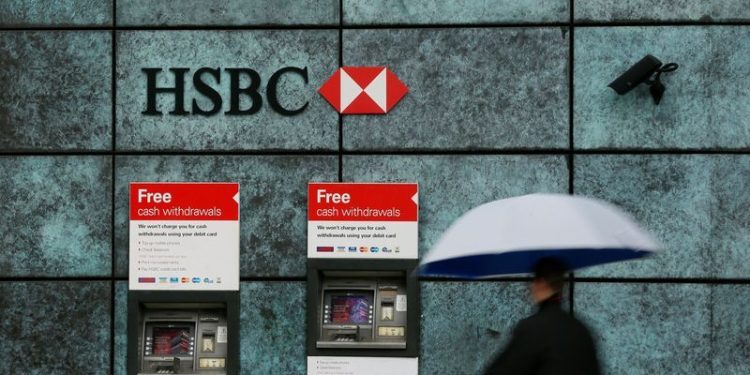By Selena Li and Lawrence White
HONG KONG/LONDON (Reuters) -HSBC Holding posted a 10% rise in third-quarter profit on Tuesday, beating analyst estimates, as its wealth and wholesale banking benefited from slower-than-expected rate cuts while it embarks on one of the largest overhauls in its history.
Europe’s largest bank posted pretax profit of $8.5 billion for the July-to-September period versus $7.7 billion a year earlier. The result compared with a $7.6 billion mean average of broker estimates compiled by HSBC.
The London-headquartered, Asia-focused bank also announced an additional share buyback of up to $3 billion, on top of a $6 billion buyback programme announced earlier this year.
Shares of HSBC in Hong Kong rose more than 2% after the results were announced.
The lender unveiled a roadmap for its sweeping restructuring under new CEO Georges Elhedery designed to control costs and improve efficiency. HSBC announced last week that it will merge some operations and split its geographic footprint into East and West, under a new leadership structure.
“We will begin to implement these plans immediately,” Elhedery said in an earnings statement, but further details will be disclosed in February next year.
The market is waiting to see how the overhaul impacts the bank in terms of costs and synergies. HSBC’s new chief, who took the top job last month, has been tasked with controlling costs and running a global lender in a lower-rates environment.
HSBC kept its 2024 and 2025 near-term return on tangible equity goal – a performance target – at mid-teens for two years but said in the statement that the “the outlook for interest rates has changed, and been volatile”.
The bank said it will pay an interim dividend of 10 cents a share, its third payout in 2024 following payments worth 41 cents announced earlier this year.
HSBC’s revenue grew 5% in the quarter ended September to $17 billion from a year earlier, with volatile market conditions supporting higher customer activity in wealth products.
Foreign exchange, equities and global debt were the highlight for the markets business.
Its U.S. and European rivals have shown early signs of sustaining profitability with global central banks starting to move to cut rates. Barclays last week reported earnings that beat estimates, showing early promise in its bid to sustain income even as interest rates fall.





